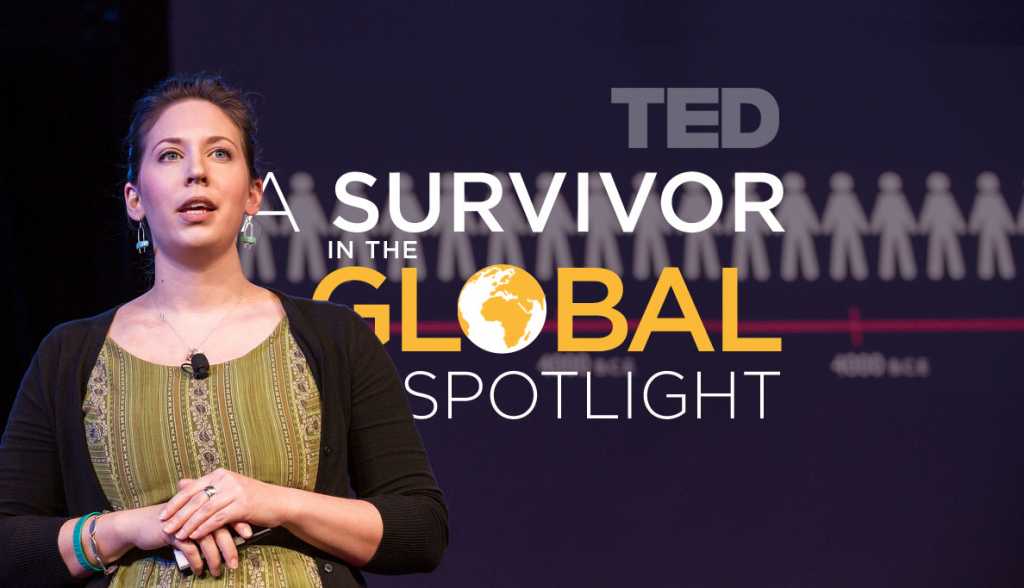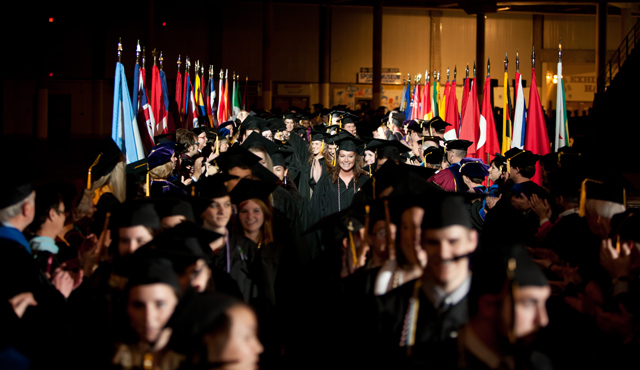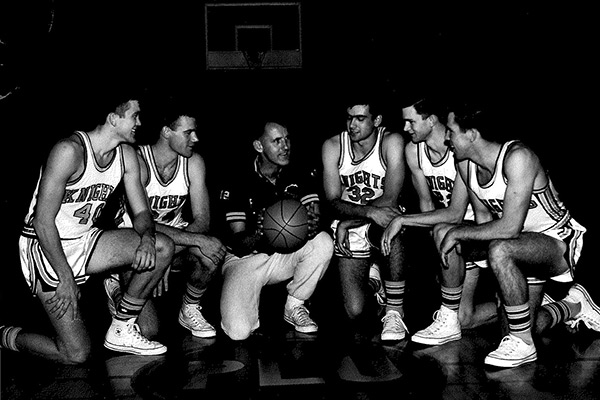Page 245 • (2,484 results in 0.075 seconds)
-
that let students operationalize what we’re learning, or ways to help them connect policy history to real life today. When I think about teaching, I try to provide an environment where there are didactic, heuristic, and philetic learning opportunities… This approach comes from teaching the social foundations of education, but also applies to teaching the craft of social work, a blend of knowledge, values, and skills. “Because of Kathy, students learned the important connection between social
-

it a field—now it is, but a very, very small field.” A small field, maybe—but one with potentially huge impact. “She is on the ground floor of a relatively new field that has the possibility of making all kinds of great insights into cancer in the evolution of history,” Ryan said. As Hunt and other researchers unearth more and more ancient evidence—breast cancer in 3500 B.C. Egypt, osteo-sarcoma in a T. rex femur—Hunt has formed an intriguing theory: She believes cancer is inherent in human
-
possible register, political reflections and literary imagination, provides each of his interventions with an impressive poignancy. His work is an exploration into the perverse social fantasies driving Mexico’s violent modern history and leaves nothing untouched.” (see BOMB Magazine article)Additional Resources BOMB Magazine Los Angeles Review of Books Three Percent World Literature Today Words without BordersFeatured PanelsWomen in Prison and Transformative LearningResilience in Disaster Relief
-

campus so beautiful and all the staff and faculty were welcoming and excited for my future! My PLU experience: At PLU I have been academically challenged and enriched in subjects from gender studies, environmental justice and jazz. I’ve learned to take risks and always found a community to fall back on. Because so much time is devoted to looking at issues and topics from a perspective other than my own, I have been challenged to discover my own capacity for compassion. What’s next? I’m hoping to get
-
ALLOWED to add this minor, as it essentially is the minor aligned with the Applied Physics major. ENGR 131 PHYS 153/163, 154/164 (calculus-based introductory physics plus laboratory) 8 additional semester hours chosen from: ENGR 240, 333, 334, 355 Plus: 8 additional semester hours chosen from: ENGR 495 (credits vary depending on internship type and schedule) Courses in business, economics, ethics, and history that introduce students to aspects of industry: BUSA 201, 310, or 358 ECON 101 or 313 HIST
-
gradebook, and send announcements. This workshop is open to all faculty/instructors. Registration is required. 9:00 – 11:00 am | Orientation to Faculty Learning Communities – Hauge Admin 101 Jennifer Smith, Dean of Inclusive Excellence In this session, the facilitators of and participants in this year’s Faculty Learning Communities (FLC) will gather to review the history, goals, and research about FLCs, generally, so as to ground our work in a shared understanding of the features that make them
-

had to wear in P.E., the day we moved a hundred thousand books to the new library, intramurals, dorm competitions, Louis Armstrong in concert, a Hubert Humphrey speech, the first dances on campus, girls wearing pants only on weekends, upper campus for women, lower campus for men, Old and New Testament taught as half sermon, half lecture, half history, crew cuts and Jackie hair, The Mooring Mast, a new swimming pool, were we the Knights or were we Lutes when the saints came marching in? When you
-
are now adding to the conversation in ways that may expand our possibilities for understanding this important dimension of human life. Consider for example just a few of the titles to have appeared in the last few years, selected to give a sense of disciplinary and theoretical range: Keith Thomas, Man and the Natural World: A History of the Modern Sensibility (Penguin/Random House 1983); E. O. Wilson, Biophilia: The Human Bond with Other Species (Harvard 1984); Harriet Ritvo, The Animal Estate
-
of self, rather than a dreamed-of salary. In short, discovery of the authentic I inspires professional creativity, and compassionate, reflective citizenship.Creating an environment that promotes lifelong honing of the I is what liberal education is all about. As such, the undergraduate “liberal arts” skills that students learn, be they history, biology, a foreign language, or psychology, should in praxis be a mere framework through which an attentive teacher lays a path for students to discover
-
bring a rich, lively analysis to bear grounded in the trio’s own personal experiences and expertise. Other Episodes+ In the podcast’s third episode, Hambrick talks with noted Trinidadian author Earl Lovelace, PLU English professor Barbara Temple-Thurston and dCenter alum Shelondra Harris ’17 about the university’s Trinidad and Tobago exchange program. The conversation covers PLU’s 25-year history with the twin-island republic, Harris’ experiences when she took part in the program and the Diversity
Do you have any feedback for us? If so, feel free to use our Feedback Form.


